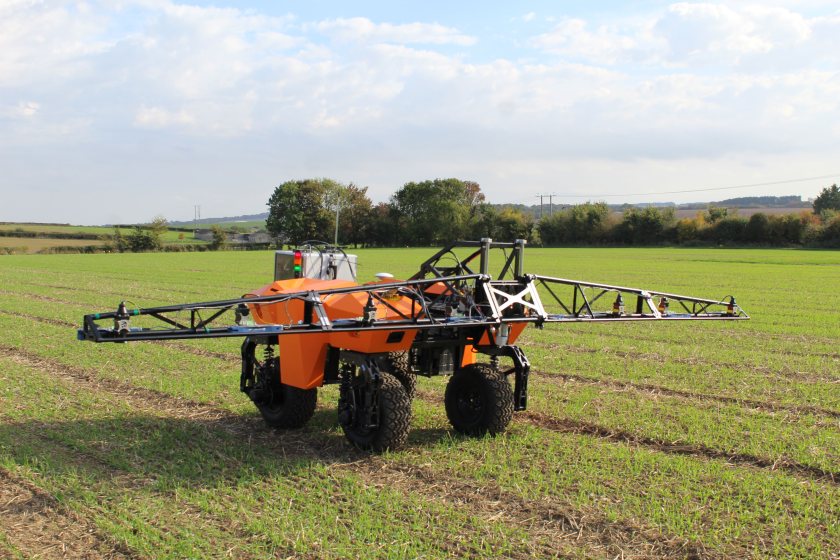
Researchers are set to utilise a pioneering autonomous robot to help farmers to better monitor the health status of individual crop plants while reducing herbicide use.
Experts will use Small Robot Company’s ‘Tom v4’ agri-tech robot to remotely scan agricultural fields to identify, locate and log individual weeds and crop plants.
The robot can see every emerging plant, water droplet, worm midden and early disease outbreak - supporting farmers to know what to treat and when, with minimal chemical use.
This information will then be passed through a complex AI algorithm to create a ‘treatment map’ which tells farmers exactly how much herbicide to use and where to apply it.
It is hoped that the research partnership between the National Robotarium and the James Hutton Institute will support farmers to reduce chemical usage by only applying on field areas where weeds or crop pests are present.
As well as detecting herbicide efficacy, additional outcomes of the project include collecting and reporting data on individual crop plants - known as per plant precision - to accurately monitor plant numbers and health.
The National Robotarium is part of the data-driven innovation initiative, supported by £21 million from the UK government and £1.4 million from the Scottish government.
The initiative aims to turn Edinburgh into the data capital of Europe and is part of the wider £1.3 billion Edinburgh and South-East Scotland City Region Deal.
Lisa Farrell, business development manager at the National Robotarium, said: “With demand on the world’s food resources set to rise significantly, it’s even more important that robotics and AI play an increasing role in assisting modern agricultural practices.
"Per plant precision agriculture is a fantastic example of how technology can help us to be kinder to the environment whilst supporting Britain's farming community to be more efficient, precise and productive."
The research's first task will be to implement Tom in cereal trials to help develop and improve precision of in-field phenotyping.
Andrew Christie, agri-tech specialist at the James Hutton Institute, said having the Tom v4 robot on site would expand researchers' capabilities in terms of agricultural research and precision breeding.
He said: "With possibilities for different cameras and AI models to be applied, the potential for this scientific tool is extensive and expansive.
"There will be lots of opportunities to explore new uses for the robot in research and it will add value to many of our research proposals going forward."
